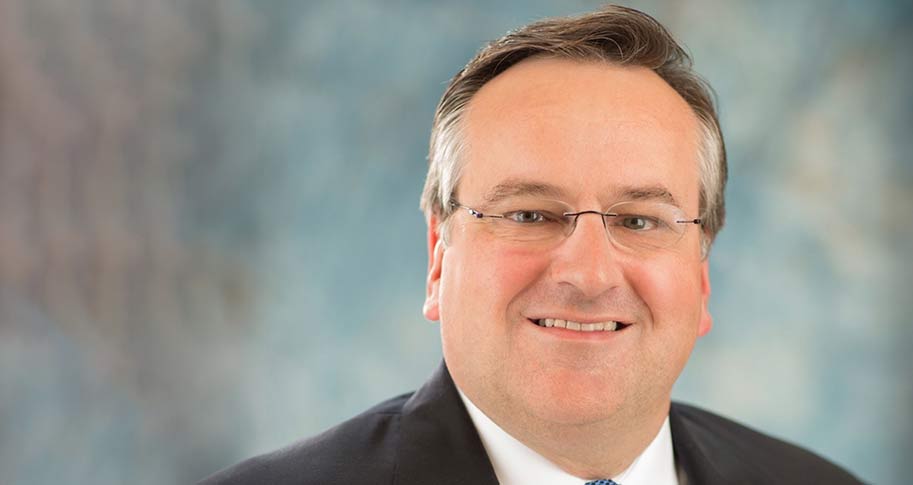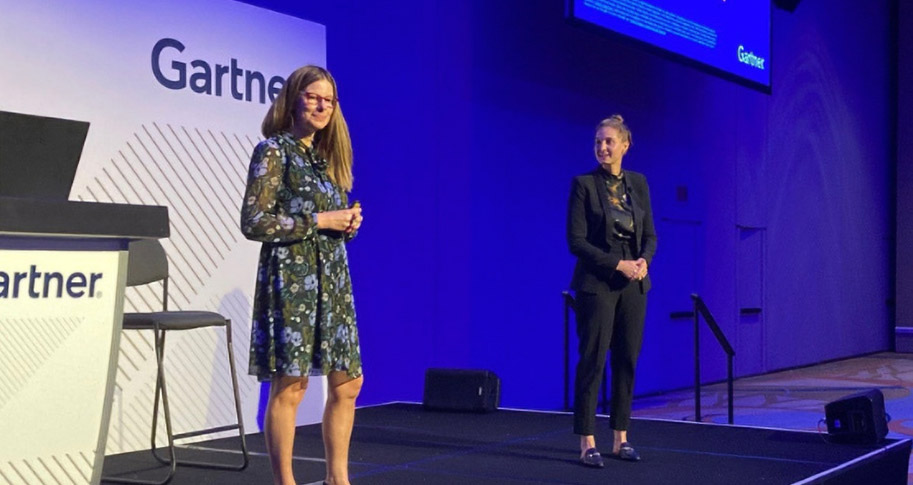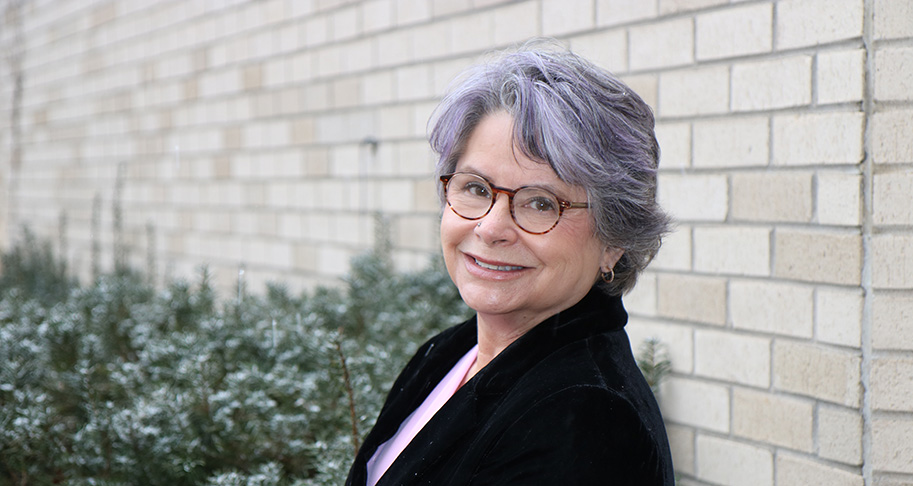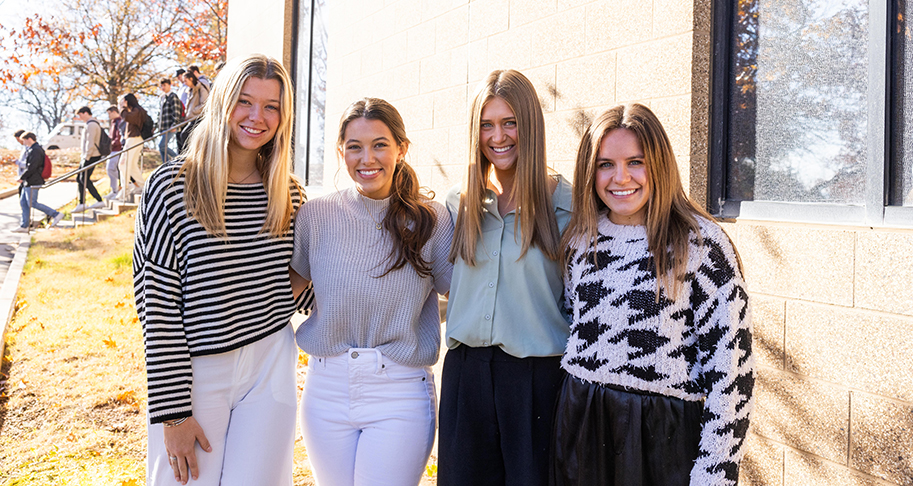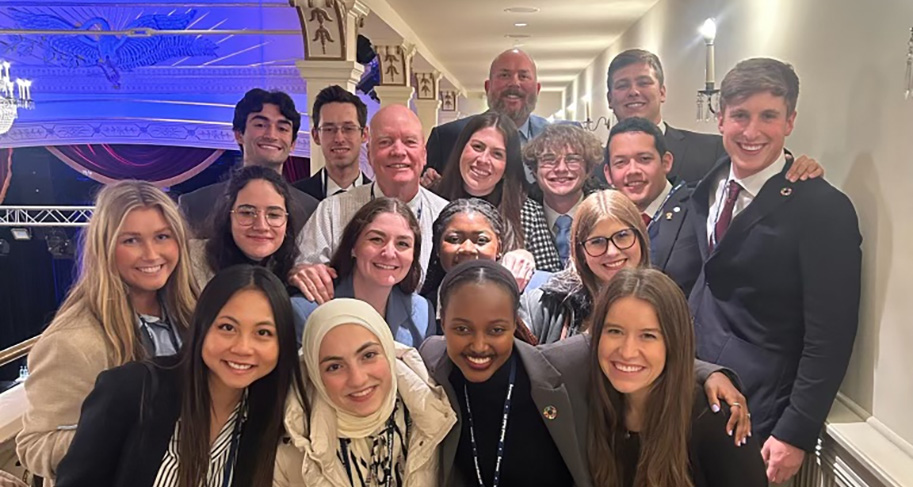
Kent said discussions began about sourcing personal protection equipment – N-95 masks, Level 2 gowns, Level 3 surgical masks and Level 2 intake masks, among other items.
“With the global demand for these supplies spiking, normal supply chains were disrupted and, in some cases, had become dysfunctional,” he said. Suppliers in China were using WeChat to advertise all sorts of available options, complete with product descriptions and photos.
“A few friends and I who are active on WeChat began wondering if we could combine our experiences and expertise to help provide hospitals and essential workers in America with an alternative supply chain to access products sourced from China,” Kent said.
Kent, who also is director of China initiatives for the Walton College, brought in Dobrzykowski to add his healthcare supply chain expertise to the George H.W. Bush Foundation for U.S.-China Relations Coronavirus Task Force. “Health care is the focus of my research, so I agreed to help in any way I could,” Dobrzykowski said.
In the past, hospitals ordered supplies through third-party providers that handled the transactions with overseas firms and the logistics to get the products shipped to the United States, usually on a cost-effective container ship.
“Now hospitals needed a faster process that provides access to new suppliers, but still one they could trust,” Dobrzykowski said.
Hospital budgets also were being challenged — not enough cash on hand, curtailment or suspension of elective procedures, new COVID-19 testing facilities, a shift to telemedicine, among others.
The group spent two weeks studying the issues and eventually coordinated the initial order for more than $1 million worth of personal protective equipment for two U.S. health systems. “The goal, of course, was to do our part to help meet an urgent need, and that is continuing,” Kent said.
These volunteers consisted of a myriad of groups and individuals, including:
- David Firestein, president and CEO of the Bush China Foundation
- Euhwa Tran, chief operating officer of the Bush China Foundation
- Robbin Goodman, director of business programs and corporate affairs for the Bush China Foundation
- Kathy Fulton, executive director of American Logistics Aid Network
- Roger Woody, board member of American Logistics Aid Network
- John Kent of Walton College
- David Dobrzykowski of Walton College
- Yang Luo-Branch, president of the Arkansas Association of Asian Businesses and board member of the Bush China Foundation
- Keith Lomason, president of Lomason Consulting in Shanghai, China.
Kent said the group identified hospitals where they could get a handle on demand and “canvased America to understand what other players in the market were doing, so we could take advantage of potential synergies by working together.”
“We spoke with CEOs, purchasing executives and mid-level management from hospitals in several states; leaders from trading companies, global logistics companies and suppliers; bankers in the United States and in China; and leaders of nonprofit foundations in both countries,” he said.
The first two orders – one from Mercy Health, the St. Louis-based hospital system with more than 40 facilities and more than 40,000 employees, and the other from Texas Tech University Health Science Center, which was ordering for itself as well as for the Texas prison system – was for more than 500,000 items, mostly N-95 masks, surgical masks, face shields and isolation gowns.
Glitches such as a field on an electronic banking form that was too small for the entered information meant delays. And delays cost money that, because of the rising price of materials used to make masks, “cost us several thousand dollars,” Kent said.
The total order cycle from placing the orders to delivery — which required airfreight instead of what Kent described as “a slow boat from China” — was expected to be just over 14 days.
“In the meantime, our volunteer group is continuing to vet suppliers and work with other hospitals on orders in what, to me, has been a fulfilling display of supply chain innovation, entrepreneurship, public/private partnerships and people from the United States and China working together for the common good,” Kent said.

